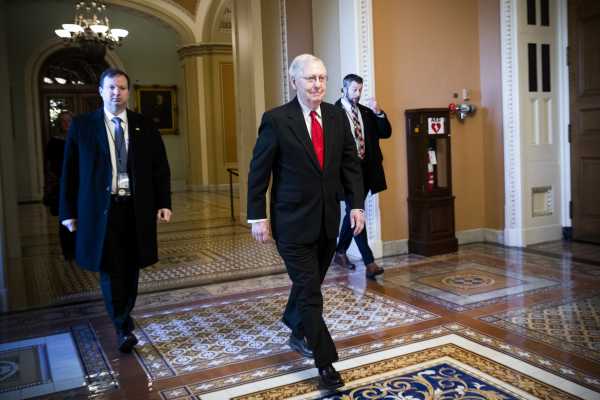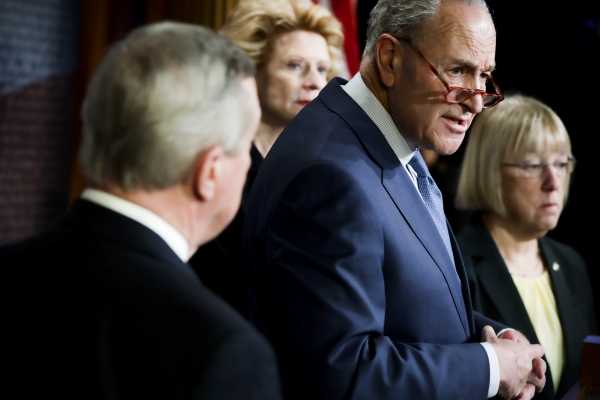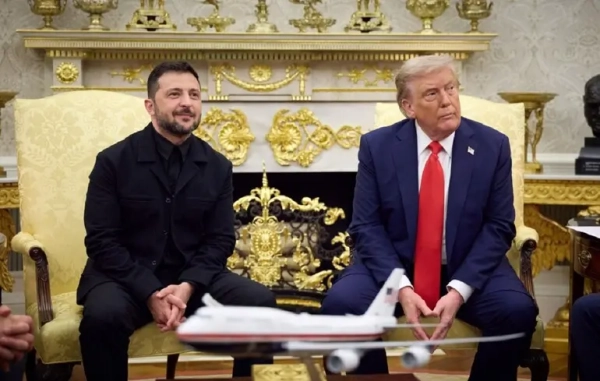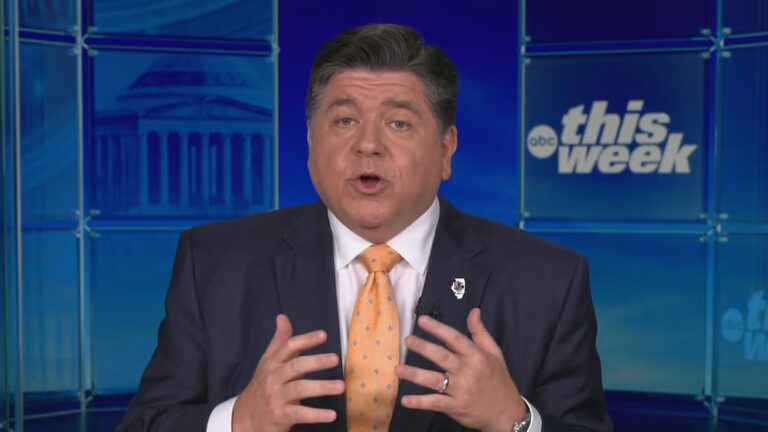
The Senate impeachment trial opened Tuesday with its first major conflict: a fight over subpoenaing witnesses and additional evidence.
In a debate that stretched for hours into the evening, Democrats made the case for requesting documents from government agencies including the State Department and the Office of Management and Budget, as well as for calling witnesses believed to have direct knowledge about Trump’s handling of Ukraine aide. Given Trump’s stonewalling of the House impeachment inquiry, they argued that further information from individuals like Acting White House Chief of Staff Mick Mulvaney would offer valuable insight into the president’s dealings with Ukraine.
Republicans, meanwhile, shot down amendment after amendment to Majority Leader Mitch McConnell’s proposed rules resolution, arguing that these questions could wait until after the two sides have offered opening arguments. They say that similar timing was used during President Bill Clinton’s impeachment trial when the Senate unanimously passed a rules resolution at the start of proceedings and considered witness testimony later in the trial, ultimately approving it via a partisan vote.
Democrats have emphasized, however, that these votes need to happen early on to guarantee the consideration of new witnesses and evidence. They note that this trial differs from Clinton’s because the witnesses who appeared in 1999 had already testified in prior depositions, unlike witnesses they’d like to call this time around who resisted appearing in front of the House.
“President Trump’s complete and total obstruction makes Richard Nixon look like a choir boy,” House impeachment manager Hakeem Jeffries said. Rep. Adam Schiff, a fellow impeachment manager, went so far as to call the current order of procedure “ass-backwards,” at one point.
In December, Democrats listed four witnesses they’d subpoena including acting White House Chief of Staff Mick Mulvaney, former National Security Adviser John Bolton, White House aide Rob Blair, and Office of Management and Budget official Michael Duffey. All four officials, who are believed to have direct knowledge about President Donald Trump’s handling of Ukraine aid, declined to testify in front of the House. More recently, Bolton has said he’d be willing to appear in front of the Senate, if subpoenaed.
Democrats say McConnell’s unwillingness to consider the witness and documents issues from the get-go are just the latest examples of how Republicans are unfairly skewing this trial in Trump’s favor.
Lawmakers recent clash began as the House impeachment managers and Trump’s defense counsel dueled over the rules resolution, which define the trial’s day-to-day schedule and procedures. It’s a measure that was first released by Senate Majority Leader Mitch McConnell on Monday and modified on Tuesday. As part of the proposed rules, the prosecution and the defense will have 24 hours each over three days to make opening arguments, followed by up to 16 hours of questioning via written questions submitted by senators.
The resolution also specifies that witnesses and documents won’t be considered until the trial is well underway.
A key factor in the disagreement is that senators must approve the rules resolution before opening arguments can begin, making this fight a central one that sets the tone for the trial.
“It is completely partisan, it was kept secret until the eve of the trial,” Schumer said at a press conference criticizing the GOP rules on Tuesday morning. “The McConnell rules seem to be designed by President Trump, for President Trump.”

The rules need a simple majority — or 51 votes — in order to pass. Because of the GOP’s current majority in the Senate, McConnell will likely be able to advance his measure with the backing of 53 members of his conference. As was made clear by multiple votes on Schumer’s amendments, those members stuck closely together to reject every single one by a vote of 53-47.
While a handful of moderate Republicans have signaled they’ll eventually back the call for witnesses, they aren’t expected to break from McConnell just yet.
Democrats are worried a late vote on witnesses could mean no witnesses at all
Given McConnell’s repeated emphasis on holding a speedy impeachment trial, Democrats have been eager to sort the witness question early, since considering it later could mean that no witnesses are called at all.
Democrats’ focus on the witness question is driven by a couple of factors: First, they anticipate that these witnesses will offer even more information about Trump’s willingness to withhold aid to Ukraine in exchange for an investigation into Hunter Biden and Burisma. Secondly, they are using this issue to raise concerns about the legitimacy of the trial and Republicans’ handling of it, in an effort to shape public opinion.
“It’s a cover-up, and the American people will see it for exactly what it is,” Schumer said in a statement over the weekend.
In a CNN poll conducted January 16-19, 69 percent of respondents — including 48 percent of Republicans, 69 percent of independents, and 86 percent of Democrats — agreed that new witnesses should testify in the Senate trial. Following McConnell’s unveiling of the rules resolution on Monday, #MidnightMitch, a hashtag criticizing McConnell’s attempts to hold a rushed trial that’s doesn’t thoroughly weigh the evidence against Trump, began trending on Twitter.
Hammering the witness question is one of several points Democrats are trying to make to highlight how skewed they see the trial becoming.
In addition to concerns about witnesses, Democrats are furious about the timing of the trial, which they see as hurried and compressed, especially when compared with the Clinton trial in 1999. One example: The McConnell resolution initially forced both the prosecution and defense to present their arguments over two days, while the Clinton trial had no such limitations. Politico’s Burgess Everett reported that this time constraint has since been expanded to three days.
“Leader McConnell’s plan for a dark-of-night impeachment trial confirms what the American people have seen since day one: The Senate GOP Leader has chosen a cover-up for the president, rather than honor his oath to the Constitution,” Speaker Nancy Pelosi said in a statement.
The drama is expected to reemerge next week
The uncertainty about witnesses and documents will likely be tabled late Tuesday evening, but it’s expected to reemerge again soon.
As part of the rules resolution, McConnell has committed to holding a vote on the subject as soon as early next week. Democrats will need the support of four Republican senators to advance a push for more evidence, including witness testimony. These discussions could also open the door for the GOP to request testimony from individuals like Hunter Biden, who could paint a potential Democratic presidential nominee in an unflattering light.
If the 47-member Democratic conference remains united, four Republican votes will help members get to the 51-vote threshold required to pass motions during the impeachment trial. “It will be whatever, after having heard initial arguments, 51 senators decide they want to do,” Sen. John Thune (R-SD) previously told the Hill.
Thus far, three Senate Republicans — Susan Collins (ME), Lisa Murkowski (AK), and Mitt Romney (UT) — have signaled interest in hearing from more witnesses, though they haven’t specified exactly which people they’d like to call. Sens. Lamar Alexander (R-TN), a moderate who’s retiring, and Cory Gardner (R-CO), one of the most vulnerable senators this election cycle, are seen as lawmakers who might provide that pivotal fourth vote.
Whether these senators wind up breaking from the Republican conference remains an open question. But given the unique roles they occupy, they have the power to shape one of the key aspects of the impeachment trial either way.
Sourse: vox.com






